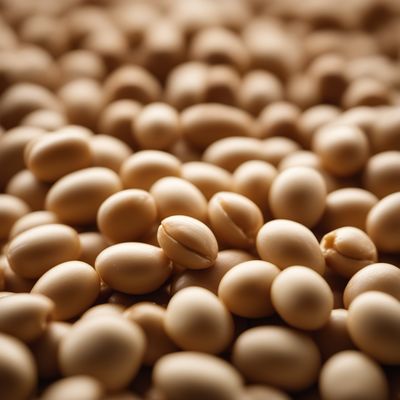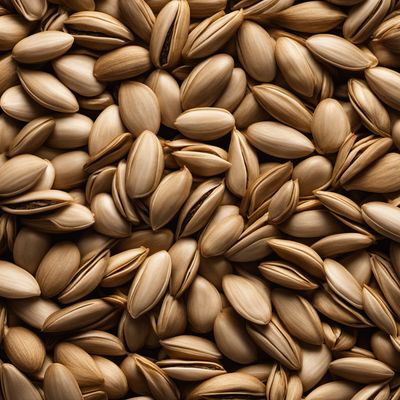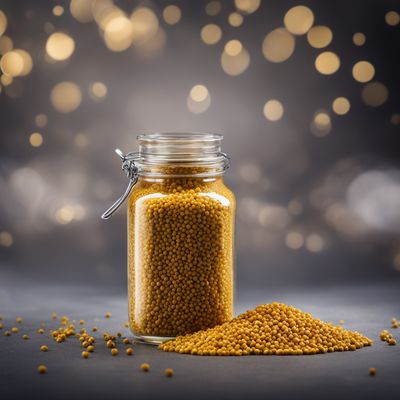
Ingredient
Oilseeds
The Nutritional Powerhouses: Oilseeds
Oilseeds are small, edible seeds that are rich in healthy fats, proteins, and various minerals. They have a crunchy texture and a nutty flavor, adding depth and richness to both sweet and savory dishes. Oilseeds are commonly used in baking, cooking, and as toppings for salads or yogurt bowls.
Origins and history
Oilseeds have been cultivated for thousands of years and have played a significant role in various cultures and cuisines. They were first domesticated in ancient Mesopotamia and have since spread to different parts of the world. Oilseeds, such as sesame seeds and flaxseeds, have been used in traditional Chinese and Indian medicine for their medicinal properties.
Nutritional information
Oilseeds are packed with essential nutrients, including healthy fats, protein, fiber, vitamins, and minerals. They are particularly rich in omega-3 fatty acids, which are beneficial for heart health. Oilseeds also contain antioxidants and phytochemicals that have various health benefits.
Allergens
Oilseeds, such as sesame seeds and flaxseeds, may cause allergic reactions in individuals with seed allergies. It is important to be cautious and consult with a healthcare professional if you have any known allergies.
How to select
When selecting oilseeds, look for ones that are fresh, dry, and free from any signs of moisture or mold. They should have a pleasant aroma and a crisp texture. Avoid oilseeds that appear discolored or have a rancid smell, as they may have gone bad.
Storage recommendations
To maintain the freshness and quality of oilseeds, store them in airtight containers in a cool, dark place. This helps prevent them from becoming rancid or losing their nutritional value. Refrigeration can also extend their shelf life.
How to produce
Oilseeds can be produced by growing specific plants, such as sesame, flax, or chia. These plants require well-drained soil, adequate sunlight, and regular watering. The seeds can be harvested when the plants have matured and the seed pods have dried.
Preparation tips
Oilseeds can be used in a variety of ways, such as sprinkling them on salads, yogurt, or oatmeal for added crunch and nutrition. They can also be ground into a paste or oil for use in dressings, sauces, or baked goods. Additionally, oilseeds can be incorporated into energy bars, granola, or smoothies for a nutritious boost.
Substitutions
If oilseeds are not available, you can use nuts or seeds as substitutes. For example, sunflower seeds or pumpkin seeds can be used instead of sesame seeds, while hemp seeds or sunflower seeds can be used as alternatives to flaxseeds. Chia seeds can be substituted with flaxseeds or hemp seeds.
Culinary uses
Oilseeds are commonly used in baking, such as in bread, cookies, or granola bars. They are also used in various cuisines, including Asian, Middle Eastern, and Mediterranean dishes. Oilseeds are often used as toppings for dishes like hummus, stir-fries, or roasted vegetables.
Availability
Oilseeds are cultivated and available in many regions around the world. Sesame seeds are commonly grown in Asia, Africa, and South America. Flaxseeds are primarily cultivated in Canada, Russia, and China. Chia seeds are native to Mexico and are now grown in several countries, including Argentina, Bolivia, and Australia.
More ingredients from this category » Browse all

Linseeds and similar-
The Mighty Linseeds

Rapeseeds and similar-
The Mighty Rapeseed: A Nutrient-Rich Powerhouse for Culinary Delights

Hemp seeds and similar-
The Superfood Powerhouse

Cotton seeds and similar-
The Versatile Powerhouses: Unveiling the Potential of Cotton Seeds

Soyabeans and similar-
The Protein Powerhouse: Soybeans

Borage seeds and similar-
The Nutritional Powerhouses: Borage Seeds and Similar

Sunflower seeds and similar-
The Nutty Powerhouse

Mustard seeds and similar-
The Zesty Gems: Unveiling the World of Mustard Seeds

Peanuts and similar-
"The Versatile Legume: Exploring the World of Peanuts and Similar Ingredients"

Pumpkin seeds and similar-
The Nutty Powerhouse

Gold of pleasure seeds and similar-
The Nutty Marvel

Safflower seeds and similar-
The Golden Gems of the Flower